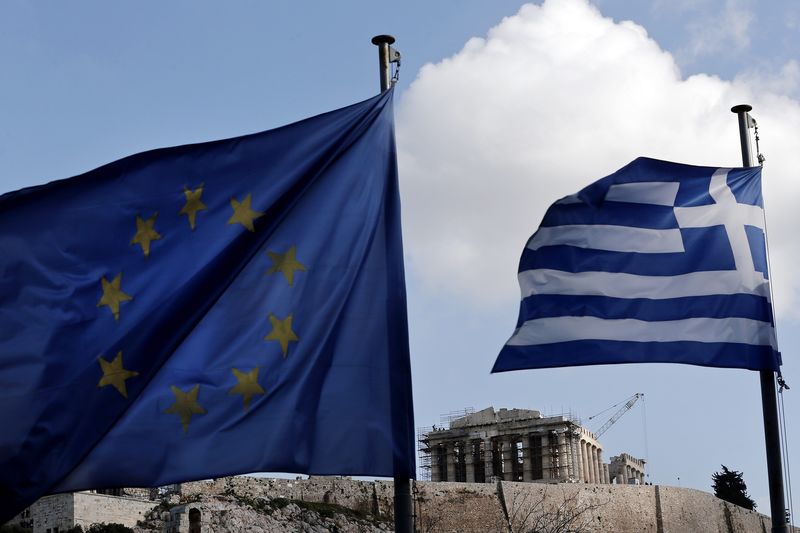Investing.com - Gold edged lower on Tuesday, following rumors of a possible six-month extension on Greece's debt.
On the Comex division of the New York Mercantile Exchange, gold futures for April delivery dipped $4.20, or 0.34%, to trade at $1,237.30 a troy ounce during U.S. morning hours.
Prices held in a range between $1,233.60 and $1,245.80. A day earlier, gold picked up $6.90, or 0.56%, to settle at $1,241.50.
Futures were likely to find support at $1,228.20, the low from February 6, and resistance at $1,269.00, the high from February 6.
Also on the Comex, silver futures for March delivery declined 14.5 cents, or 0.85%, to trade at $16.92 a troy ounce. Silver rallied 37.6 cents, or 2.25%, on Monday to end at $17.07.
Gold briefly hit the lowest levels of the session after rumors surfaced that the European Commission could propose a six-month extension to Greece's bailout program, which is due to end on February 28.
Athens main stock index rallied nearly 7%, while the yield on Greek 10-Year bonds tumbled sharply to trade below the 11%-level on the report.
Prices were slightly higher earlier in the day amid concerns over Greece’s future in the euro zone as negotiations with the European Union over the country's debt and bailout continued.
Meanwhile, the growing possibility of an earlier Federal Reserve rate hike also weighed, following last week's robust U.S. jobs report, which saw market players bring forward expectations for the first rate hike to June.
Expectations of higher borrowing rates going forward is considered bearish for gold, as the precious metal struggles to compete with yield-bearing assets when rates are on the rise.
Elsewhere in metals trading, copper for March delivery slumped 2.8 cents, or 1.09%, to trade at $2.553 a pound, after data showed that inflation in China slowed to the lowest level in five years, underling concerns over a slowdown in the world's second largest economy.
A government report released earlier showed that Chinese inflation for January slowed to 0.8%, the lowest since November 2009, from 1.5% in December.
The producer price index fell by a more-than-expected 4.3% last month, giving policymakers in Beijing more room to ease monetary policy.
China's central bank cut banks' reserve requirement ratios last week in an effort to boost lending and spur economic activity.
The Asian nation is the world’s largest copper consumer, accounting for almost 40% of world consumption last year.
